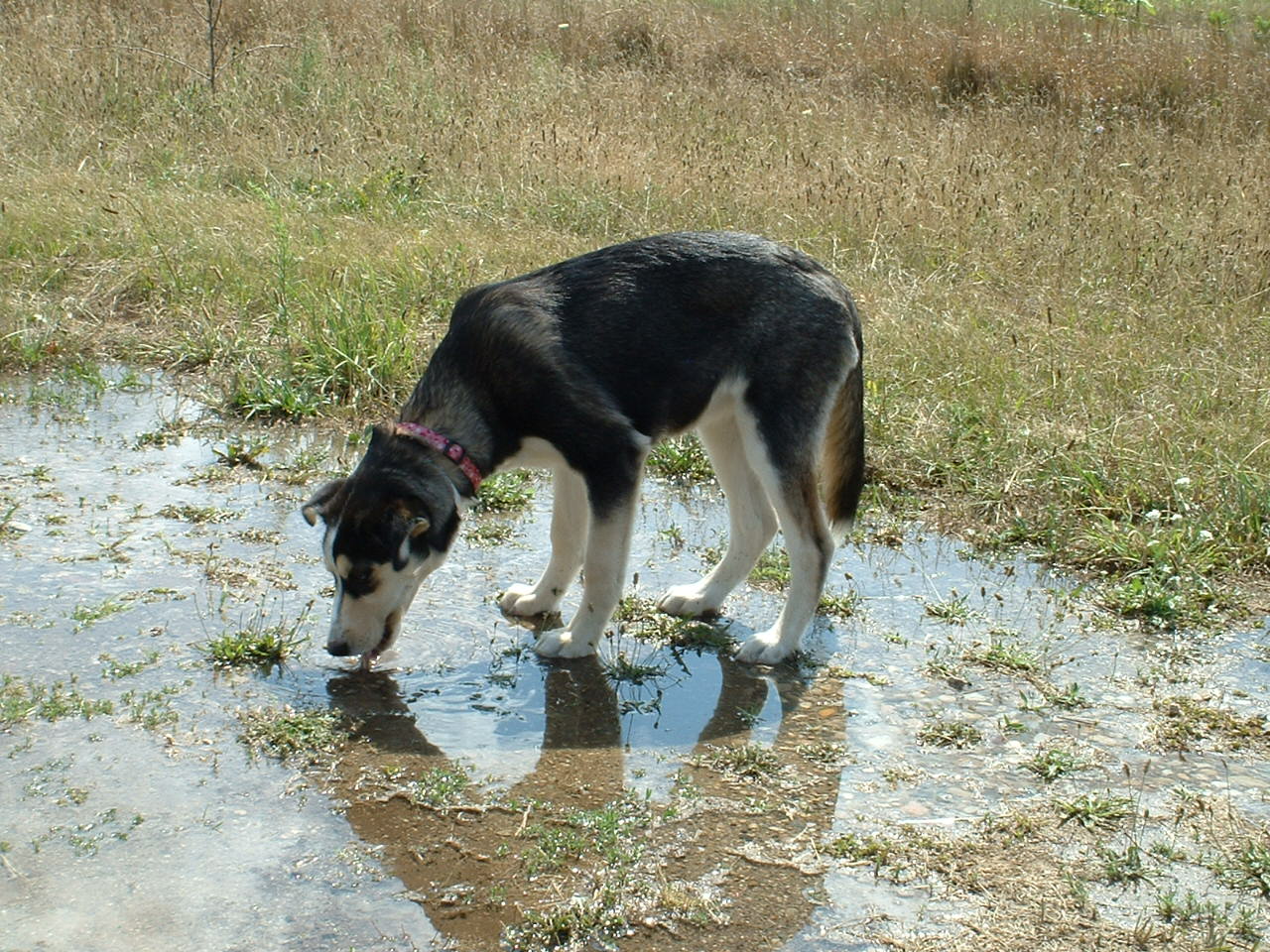
by Amanda Critchfield, DVM
Over the past few months, we have been diagnosing an increased number of patients with diarrhea caused by Giardia. The cool, wet climate of a Michigan spring and the many common areas throughout Ann Arbor are ideal for Giardia to thrive so we’re likely to continue seeing more of these cases.
What is Giardia?
Giardia is a microscopic parasite that makes its home in the intestines of an infected animal—dogs, cats and even humans can all be hosts. It has two life stages. In the first, the trophozoite, the organism is fragile but an active mover and is the cause for diarrhea. In the second stage, the cyst, the organism has a protective shell allowing it to survive out in the environment.
How do animals get infected?
The infection begins when an animal ingests the cyst form of the parasite that they’ve picked up from the contaminated environment. The cyst then breaks down to the trophozoite stage which attaches to the intestines and causes the diarrhea. Finally, the parasite forms new cysts in the intestines which are passed in the feces, waiting to be picked up by some other unfortunate animal. The cycle then repeats in the new host.
An animal can become infected with Giardia by exposure to contaminated soil in parks, woods, kennel areas, etc.; or by drinking contaminated water (from a puddle, creek, pond, etc.) which contains the cysts. They can also become infected by exposure to the feces of other infected animals.
Giardia cysts can persist for up to two months in cool and wet environments. Once the temperatures climb into the 70’s and the moisture declines, they cannot persist for much longer than a few days.

Symptoms
Most commonly, pets will develop a mild case of diarrhea that lasts for a few days not requiring any treatment. They continue to be active and have a normal appetite.
Pets that have repeated bouts of diarrhea, blood and/or mucous in their stools, have a decreased appetite, or that vomit should be evaluated and tested based on their history as treatment may be indicated.
When bringing your pet in for diarrhea, please try to bring a recent stool sample for testing.
Treatment
Getting rid of this parasite can be challenging at times because it is hard to eliminate Giardia from the outdoor environment, increasing the potential for reinfection.
Treatment may entail a combination of multiple types of medications lasting from a few days to a few weeks. A higher fiber, easily digestible diet helps to prevent the parasite from attaching to the intestinal walls.
Keep your pet and their immediate environment as clean as possible while going through the illness. This is just as important as giving the medications that are prescribed because it helps prevent reinfection. Try these things:
- Daily hind end bathing because cysts can cling to fur
- Clean up stools in the yard immediately to prevent soil contamination
- Avoid or limit access to common areas while undergoing treatment to prevent the spread to other animals
Pets do not develop immunity to Giardia and can very easily become reinfected either by picking it up again in the soil or from self grooming. Reinfection can happen within just a few days of stopping treatment!
Because many animals with Giardia will cure on their own, we typically will only treat those patients with positive testing and clinical signs.
Human Safety
The risk of becoming infected from your pet is very small. There are many types of Giardia and those that cause disease in humans are not typically the type that infect cats and dogs. Animal-to-human transmission is thought to be a rare occurrence. However, young children and immunocompromised adults have a slightly higher risk. To be safe, everyone should wash their hands after handling pets or their stools. Wearing gloves when handling stools and consider bathing your pet until the symptoms have resolved.
If you’d like more information on Giardia and how it can affect you and your pets, visit the Centers for Disease Control or the Worms & Germs Blog.
Recent Posts
About Us
Ann Arbor Animal Hospital is a locally-owned animal hospital operating for over 90 years in Ann Arbor, MI.
